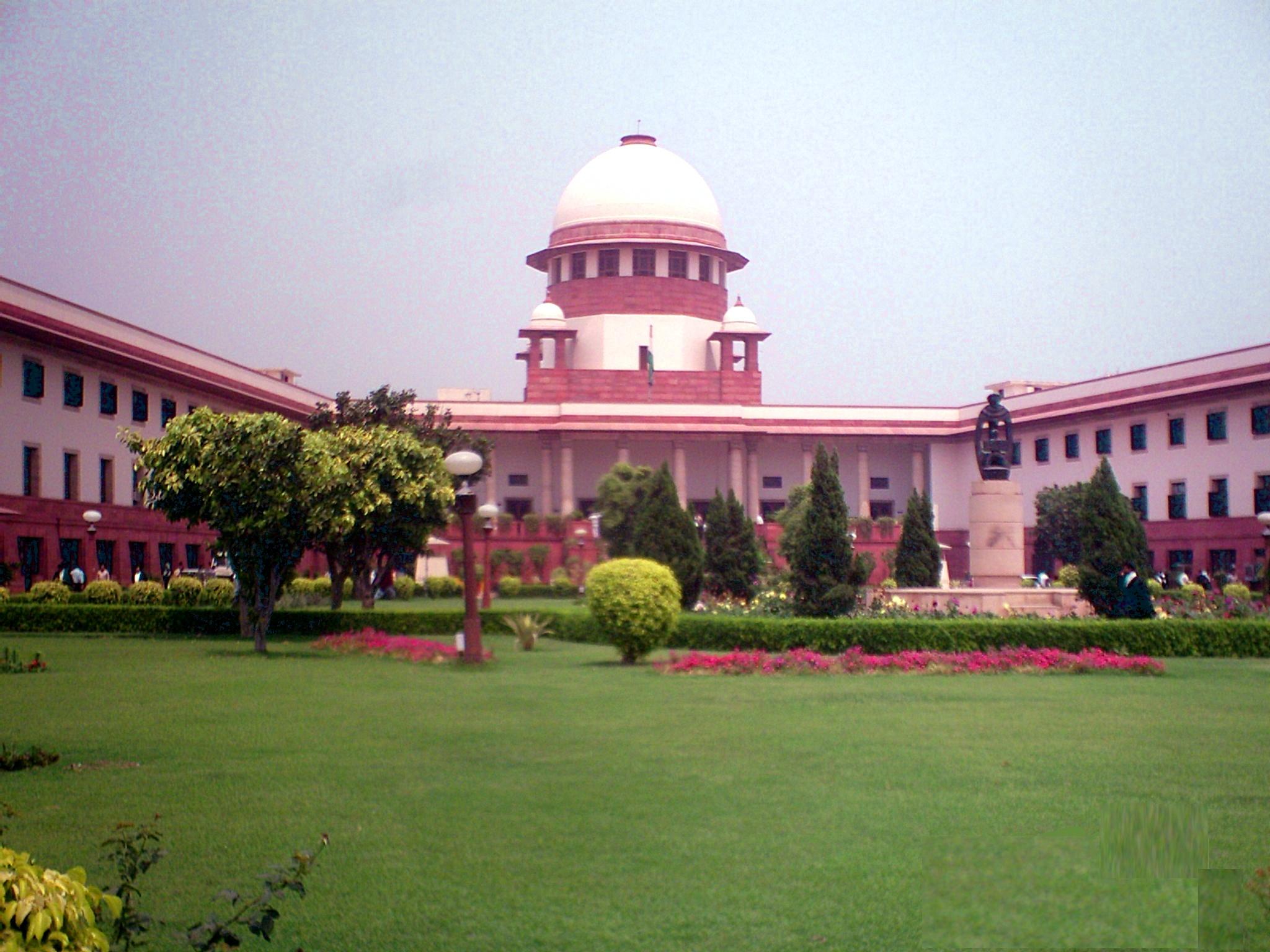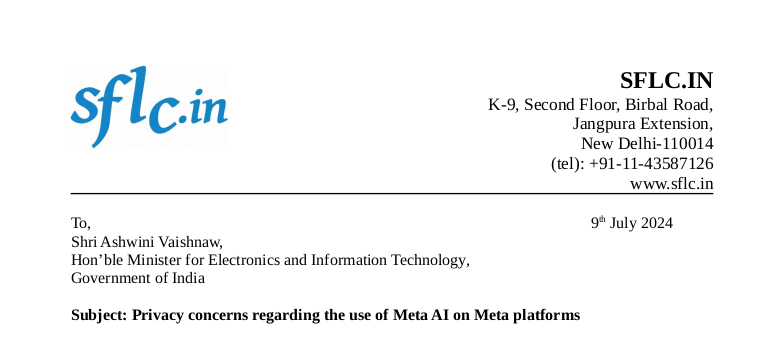Today, a nine-judge Constitution Bench of the Supreme Court continued hearing arguments on the existence of a fundamental right to privacy, in connection with the matter of Justice K.S. Puttaswamy and Ors. v. Union of India and Ors. [W.P.(C). No. 494/2012] that challenged various aspects of the Aadhaar scheme.
Senior Advocate Arvind Datar resumed arguments on behalf of the petitioners, and started by recapitulating his arguments from yesterday. Stating that privacy is implicit in Articles 14, 19 and 21 of the Constitution, he contended that the SC’s decisions in M.P. Sharma v. Satish Chandra(AIR 1954 SC 300) and Kharak Singh v. State of U.P.(AIR 1963 SC 1295)did not deal with privacy beyond making a few stray comments on the subject, while on the other hand, there have been over 35 decisions that have reaffirmed the right to privacy. M.P. Sharma and Kharak Singh therefore deserve to be overruled, said Mr. Datar.
Justice Kaul asked Mr. Datar at this point whether there is a right to privacy that applies against private entities. Quoting Lawrence Tribe, Mr. Datar explained that there are three kinds of privacy: physical, informational, and decisional. If the privacy of an individual is violated by a non-state actor, the individual would be entitled to punitive and/or injunctive remedies. Justice Chandrachud then observed that if the fundamental right to privacy is horizontally applied, the state would be obliged to make a regulatory framework to protect privacy. Mr. Datar responded by pointing out that horizontal rights can be regulated by the state depending on the extent to which they infringe public interest. He also relied on the SC decision in R. Rajagopal v. State of T.N. (AIR 1995 SC 264) as an example of a case where a mix of both vertical and horizontal application of fundamental rights was involved. With this Mr. Datar concluded his arguments.
Senior Advocate Anand Grover argued next for the petitioners. He started with the contention that the Constitution is a living document and hence,needs to evolve over time. Noting how the present Bench only needs to overrule one part of M.P. Sharmaand howManeka Gandhi v. Union of India had already overruled Kharak Singh, Mr. Grover pointed out that privacy as a Common Law right is not actionable in India as we follow English Common Law, however, it is actionable under United States Common Law. He mentioned that under international law, remedy against violation of privacy lies against State and not private parties. He further submitted that under international law, it is an accepted position that all human rights are interconnected. The inter-linkage of fundamental rights was also recognized in I.R. Coelho v. State of T.N. (AIR 2007 SC 861). It was also recognized in I.R. Coelho as well as M. Nagaraj v. Union of India (AIR 2007 SC 71) that fundamental rights must be given expansive interpretation so that they evolve with changing conditions.Govind v. State of M.P. (AIR 1975 SC 1378) had additionally held that fundamental rights should not be fossilized.
Mr. Grover then spoke about how the Universal Declaration of Human Rights (UDHR) and the International Covenant on Civil and Political Rights (ICCPR) cast obligation on the State to respect and protect right to privacy. He, thus, stated that even if there is no right to privacy in the Constitution, the State is supposed to go by the Common Law principle, thereby being obligated to enact legislative measures. After reading out other international covenants ratified by India, where right to privacy has been recognized, he submitted that the Protection of Human Rights Act, 1993 incorporates international human rights law into Indian law. Mr. Grover pointed to the multiple reports published by United Nations Special Rapporteurs to demonstrate that there is a detailed international framework protecting privacy rights, and cited the four-factor proportionality standard found in international human rights law. He then relied on the SC’s decision in Visakha v. State of Rajasthan (AIR 1997 SC 3011) for the proposition that in the absence of domestic law, international law can be applied. The same case also held that international human rights standards can be read into fundamental rights provisions, as did Bachan Singh v. State of Punjab (AIR 1980 SC 898) and Francis Caralie Mullin v. Union Territory of Delhi (AIR 1981 SC 746).Reiterating that human dignity is the essence of Article 21, Mr. Grover read out portions from the SC’s decision in National Legal Services Authority v. Union of India [(2014) 5 SCC 438] in support of reading Article 17 of the ICCPR on right to privacy into the Indian Constitution. Justice Nariman observed that this is an important argument as it can prove that the M.P. Sharma judgment in 1954 was incorrect.
Justice Chandrachud observed at this point that a Government that collects vast amounts of data of its citizens may use artificial intelligence to analyze metadata and determine who is predisposed towards committing crimes. Such a case will constitute violation of privacy. However, the same Government can use that metadata to further socio-economic interests of the people by way of welfare schemes. This case will not result in violation of privacy. Thus, the question is of legitimate and illegitimate use of data and therein lies the distinction. CJI Khehar added that the question of infringement of privacy arises when an individual is compelled to furnish such information which infringes his dignity. He noted that privacy flows from dignity, which in turn flows from liberty, though he also said that liberty in the Preamble is not as wide as Mr. Grover had suggested it to be. Mr. Grover then submitted that dignity is the underlying value, and that privacy is necessary to protect dignity. While all dignity claims may not be related to privacy, all privacy claims arise out of dignity, he stated. Concluding his arguments, he said that it is not possible to lay down a specific formula with respect to privacy – rather, it has to be decided on a case to case basis.
Senior Advocate Mr. Sajan Poovayya argued next for the petitioners, and focused his arguments on the current state of digital privacy and security. He asserted that with the society moving towards digitalization, it is important to protect our digital spaces. He mentioned how Kharak Singh and M.P. Sharma discussed physical surveillance, but in today’s day and time, surveillance is conducted digitally. Mr. Poovayya highlighted that India is ahead of United States in terms of mobile and broadband penetration, and given the amount of data that is being put online by us, the issue of enacting a data protection or privacy legislation would have undoubtedly arisen in some case, if not in the case of Aadhaar. He cited the case of Katz vs United States, wherein the court had extended Fourth Amendment protection to all aspects where an individual has a “reasonable expectation of privacy.” Further, Justice Sotomayor’s opinion that questioned the constitutionality of warrantless short-term GPS surveillance, in the case of United States vs. Jones was also cited.
Mr. Poovayya pointed out that the state would have dealt with data collected by it very differently if privacy was recognized as a fundamental right earlier. He made special mention of the Aadhaar project, and said its large scale collection of biometrics may never have happened, had there been an overarching right to privacy at the time of its conceptualization. He also highlighted that in a digital society, collection and analysis of data occurs everyday, but the data should be processed only to the extent of consent granted for the same. At this point, Justice Chandrachud asked: “How is surrendering data to private parties different from surrendering data to the state? What is the theoretical basis for that? Is it just Constitutional value or something beyond that?” Mr. Poovayya answered by saying that in case of surrender of data to the state, the state has to assure that the data will not be used for any other purpose other than that for which it was given. Also, the time period for which the data is retained is crucial. Further, he stated that the theory that individuals who have voluntarily given away their data have no right to privacy has to be reconsidered.
Mr. Poovayya asserted that in this age, everyone has a digital identity, besides having a physical identity, and the state is obligated to protect our digital identity as much as it is obligated to protect our person. Also, he read out the part in the Kharak Singh judgment that discussed psychological restraint. He said that the fact that the state can monitor individuals’ data will have a psychological restraint on them, resulting in chilling effect. Mr. Poovayya quoted parts of the right to privacy article written by Warren and Brandeis in 1890 that envisioned future invasive technologies and mentioned the importance of a right to be left alone. He emphasized the need for a fundamental right to privacy and gave the example of the Post Office Act of 1898 that prescribed strict procedures for letters to be opened only by intended recipients, thus affirming that right to privacy was inherent even during the colonial era. Further, he also mentioned Section 8(1)(j) of the Right to Information Act, 2005 that says that “there shall be no obligation to give any citizen any information which relates to personal information the disclosure of which has no relationship to any public activity or interest, or which would cause unwarranted invasion of the privacy of the individual unless the Central Public Information Officer or the State Public Information Officer or the appellate authority, as the case may be, is satisfied that the larger public interest justifies the disclosure of such information.”
He wrapped up his arguments by stating that a fundamental right to privacy is the need of the hour and its contours should be decided on a case to case basis.
Senior Advocate Ms. Meenakshi Arora commenced her submissions next by stating that the issue before the Bench is whether the statements with respect to privacy in Kharak Singh and M.P. Sharma are correct expressions of the Constitution. She further pointed out that the majority judgment in Kharak Singh had relied on Wolf vs. Colorado to strike down Section 236(b) of the U.P. Police Regulations, and remarked that privacy against arbitrary intrusion is as important in India as it is in the US, in stark contrast to the Bench’s subsequent refusal to recognize the right to privacy. The majority judgment also mentioned the word “dignity.” Ms. Arora further stated that the right to privacy can also be drawn from Articles 17, 24 and 25 of the Constitution. She evaluated the evolution of the right to privacy by citing various English judgments, and the Indian case of District Collector vs. Canara Bank (AIR 2005 SC 186) was also mentioned as an important case in this regard. She concluded her submissions by saying that history has taught us that without a fundamental right to privacy, the consequences will be unimaginable.
With this, the petitioners have completed their arguments in the matter. The respondents i.e. the state will start their arguments on Tuesday, July 25.



